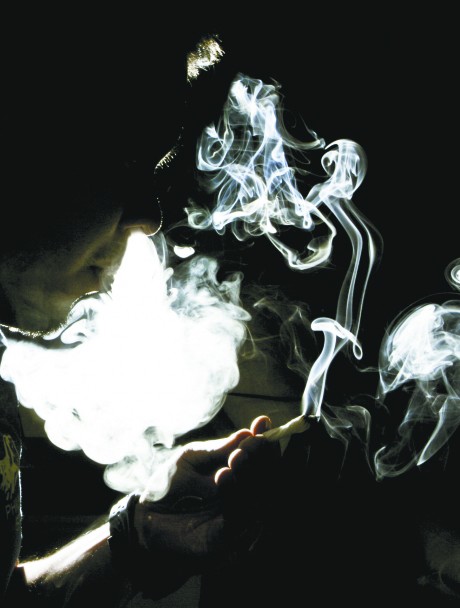New MACES program introduced for marijuana

GVL Archive Marijuana
Nov 14, 2011
With marijuana-related offenses on the rise at Grand Valley State University, the team behind the university’s Alcohol Campus Education Services, or ACES, is introducing a new program, MACES, for students charged with marijuana offenses.
Like the ACES program, which GVSU requires students charged with liquor law violations to participate in, MACES is an educational program aimed at informing students about the health consequences and safety risks of marijuana use, as well as dispelling myths and misconceptions about the drug.
According to GVSU’s latest published crime statistics, liquor law violations, including minor in possession citations, have decreased, but drug violations have increased.
In 2010, 56 students were charged with drug violations, compared to 34 students in 2009. The Allendale Campus’ reported drug offenses “almost entirely” involved marijuana, said Capt. Brandon DeHaan, the assistant director of the Grand Valley Police Department.
Use of marijuana is a 90-day misdemeanor charge, while possession of marijuana is a one-year misdemeanor. DeHaan said the increase in on-campus marijuana charges could possibly be the result of GVSU’s “revolving” population as students enter into or leave the university community each year.
“If those students were consuming marijuana in high school, then there is a higher prevalence to continue using it college,” DeHaan said. “That doesn’t necessarily identify trends for us but a cause as we have that revolving student population.”
Eric Klingensmith, director of both the ACES and MACES programs, said the increase could also be the result of changing generational attitudes toward marijuana. Based on his interactions with students, Klingensmith observed that some students today view marijuana as an herb with medicinal properties rather than as an illegal drug, and marijuana is often perceived as being “safer” than abusing prescription pills or using other drugs.
“The fear factor is no longer there,” he said. “… In reality, it’s still a drug and it still has drug potencies.”
Klingensmith said marijuana on the market today is more potent than marijuana from decades past and can also be laced with other harmful substances which the user may be unaware of, since there is no regulation on marijuana like there is with alcohol.
After a student is charged with a marijuana offense by either the GVSU or local police, notification is sent to the Dean’s Office. The student is then contacted by the Dean’s Office and required to attend one of the MACES sessions.
While ACES sessions are held once a week, Klingensmith said the need is not currently as high for MACES sessions, which will be scheduled on an as-needed basis throughout the semester. Three sessions have been conducted so far this semester.
Like the ACES program, Klingensmith said MACES takes a “non-preachy” approach and focuses on safety and health rather than passing judgment on students who choose to use marijuana.
“We really try to focus on being non-judgmental,” he said. “We’re trying to make this an educational experience, not a punishment. … You decide what to do with it. If you decide to take that risk again, you may get caught again. We want students to be aware of that and make hopefully good choices down the road.”
After completing the session, which lasts for 90 minutes, all students must complete an evaluation of the program and offer feedback on their experience with MACES. While concrete data has not been processed yet, Klingensmith said anecdotal feedback shows most students felt they had learned something from the program, particularly about marijuana’s impact on driving ability and the link between marijuana usage and traffic accidents. In response to initial student feedback, MACES is currently working on incorporating more video clips into the program as well as showing actual neural imaging to demonstrate marijuana’s effects on the brain, a topic already covered in the course.
The MACES program is also available as a workshop that can be conducted for the general student population at on-campus housing units if students are curious about the program or housing staff would like to introduce it to residents. Klingensmith said the workshop format is part of taking a “proactive versus reactive” approach to marijuana use.
There are also plans to eventually expand the ACES program to include other drugs. According to Klingensmith, the likely next step will be focusing on the abuse of over-the-counter and prescription drugs.

























